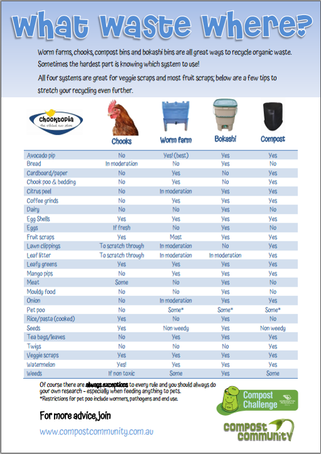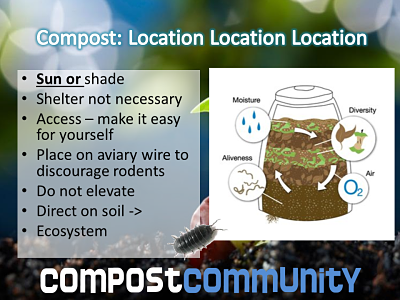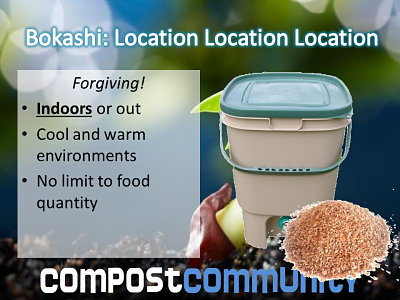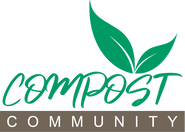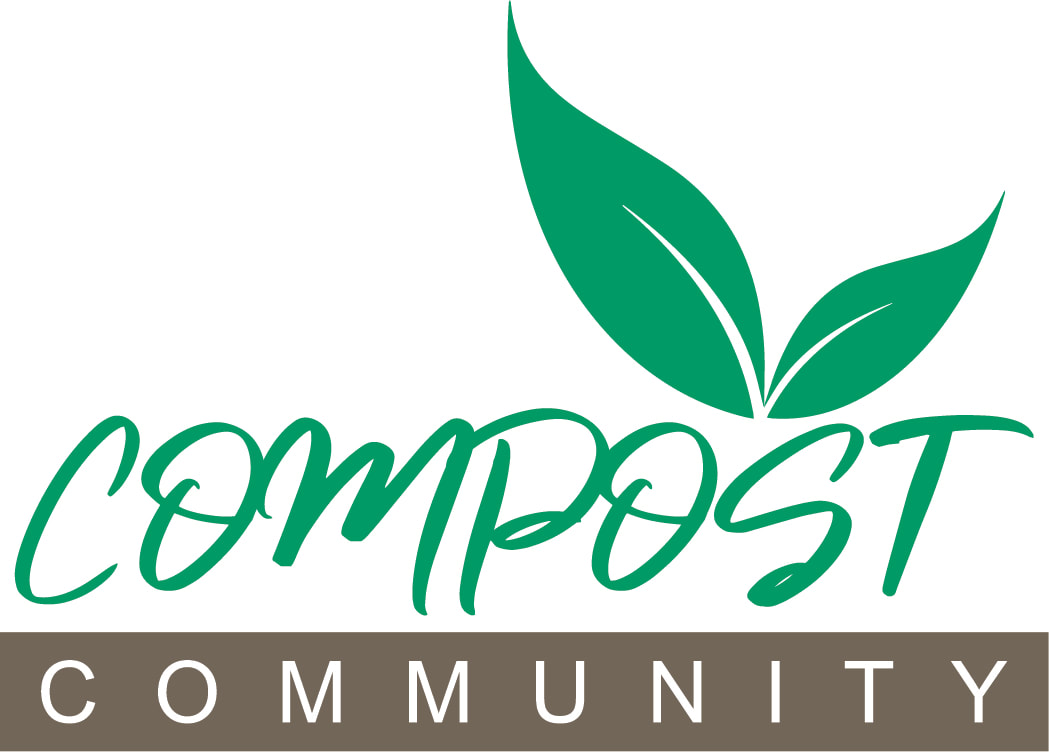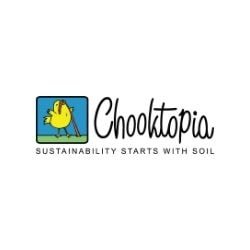Choosing a composting system
"Horses for courses" as they say. What suits one person might not suit someone else. The following guide takes you through the differences between the systems, and quantities they can compost.
What's the difference between different composting systems?
|
Choosing a system based on your food scraps - type and volume
|
There are lots of different composting systems out there, and for a new composter, it can be quite overwhelming in choosing which system is right for you.
At Compost Community we use a combination of the following:
Compost is best for... Large amounts of organics (over 1kg a day) Worm farms are best for... Vegetable waste (up to 1kg per day once worm population grows) Bokashi is best for... All food scraps (over 1kg per day) |
How much can I compost?
The bigger the system, the more you can compost. If you have a lot of garden waste, consider a compost bin or tumbler.
If you have a large household, consider running more than one bokashi system, or starting with more than 1000 worms. After a year, your worm population will be able to process over 1kg of waste, even in a small worm farm like the worm buffet.
If you have a large household, consider running more than one bokashi system, or starting with more than 1000 worms. After a year, your worm population will be able to process over 1kg of waste, even in a small worm farm like the worm buffet.
Why use more than one composting system?
Each composting system has its own strengths and weaknesses. You need to look at what organic waste (resources in fact) that you produce, and choose a system that meets your needs.
We use chooks as they give back so much more not only in eggs, but lots of love too. But chooks don't eat everything we produce - in particular: avocado pips, bread (fills them up but lacks nutrition), mango seeds, citrus, dog poo, rhubarb leaves.
We use worm farms as they are fast, fun and interactive, and are awesome at breaking down avocado pips, coffee grinds and tea leaves, watermelon skin, banana peels, mango pips and stone fruit seeds. They are also a great way to compost some of your chicken bedding.
We use compost bins for some of the trickier ingredients such as onion, cabbage, citrus and lawn clippings. You can also put soil in a compost bin but not in many other systems.
The dogs eat much of the cooked food scraps and meat/bones.
We use a bokashi bin to not only speed up our compost bin, but to tackle dairy, bread, and basically any food that has gone off that is too acidic for the worm farm.
We often directly apply chook bedding and poo around our fruit trees and directly into the veggie patch as well.
Between all our compost systems, the only organic waste (resources) that need to leave our property are fallen branches that we can't use in craft and furniture building. We are saving for a decent mulcher. Can you put dog poo in a worm farm?Yes you can.
Things to consider however are:
We use chooks as they give back so much more not only in eggs, but lots of love too. But chooks don't eat everything we produce - in particular: avocado pips, bread (fills them up but lacks nutrition), mango seeds, citrus, dog poo, rhubarb leaves.
We use worm farms as they are fast, fun and interactive, and are awesome at breaking down avocado pips, coffee grinds and tea leaves, watermelon skin, banana peels, mango pips and stone fruit seeds. They are also a great way to compost some of your chicken bedding.
We use compost bins for some of the trickier ingredients such as onion, cabbage, citrus and lawn clippings. You can also put soil in a compost bin but not in many other systems.
The dogs eat much of the cooked food scraps and meat/bones.
We use a bokashi bin to not only speed up our compost bin, but to tackle dairy, bread, and basically any food that has gone off that is too acidic for the worm farm.
We often directly apply chook bedding and poo around our fruit trees and directly into the veggie patch as well.
Between all our compost systems, the only organic waste (resources) that need to leave our property are fallen branches that we can't use in craft and furniture building. We are saving for a decent mulcher. Can you put dog poo in a worm farm?Yes you can.
Things to consider however are:
- What you feed your dog - it may determine if you are comfortable using the castings on the veggie patch
- Worming of your dog - you will need to do a kamikazi-worm test before you start adding dog poo to your worm farm again so that you don't kill off your whole population. Just take a few worms from the farm and add them to an icecream container with some fresh dog poo. If the worms haven't died after a week, it is safe to start wormfarming the dog poo again.
- It may be worth considering having a separate worm farm just for your dog poo - where you can use the castings on the non-edible garden beds, and have a worm farm just for vegetable scraps dedicated for your veggie patch.


